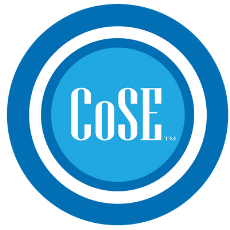Written by: Elena Bassoli
Reading time: 5 minutes
Adoption of IoT Solutions for Sustainability in Corporate Environments: Digital Innovation and Youth Empowerment
In recent years, companies have been placing greater emphasis on sustainability and environmental responsibility. As part of this transformation, digital technologies, especially the Internet of Things (IoT), are playing a fundamental role in helping businesses become more sustainable. By connecting devices and systems, IoT solutions make it easier for organizations to operate more efficiently, monitor their impact, and stay accountable. These improvements directly support broader environmental, social, and governance (ESG) goals (Scope ESG Analysis, 2021).
The Rise of IoT and Sustainability Goals
There is no single universal definition of what IoT is, however, Xia et al. (2012, p.1101) define it as the “networked interconnection of everyday objects” allowing real-time data collection, analytics, and remote management. These capabilities enable a fully digitally integrated value chain across suppliers, plants, distributors, and products, significantly improving operational efficiency, predictive maintenance, resource utilization, and safety management, all essential for advancing sustainability objectives. For instance, IoT technologies can reduce energy consumption by providing real-time analytics on equipment usage, optimizing preventive maintenance, and enabling informed decisions about resource allocation (Achouch, et al. 2022).
According to a PwC study (2016), digitization through IoT and Industry 4.0 is expected to bring average annual reductions in operational costs by approximately 3.6%, alongside efficiency gains of 4.1%. These advancements not only foster economic benefits but also substantially decrease environmental footprints, aligning closely with corporate ESG commitments (Pozzi & Dwivedi, 2023).
ESG and Regulatory Drivers of IoT Adoption
Environmental, Social and Governance refers to a set of criteria used to evaluate an organisation’s ethical impact. In November 2024, the Council of the European Union adopted a new regulation aimed at standardising and improving ESG rating activities across the EU. The goal is to strengthen the reliability, comparability, and credibility of ESG assessments to boost investor trust in sustainable investment products (Council of the European Union, 2024). These regulatory developments highlight the increasing pressure on companies operating in Europe to show measurable sustainability outcomes supported by verifiable data.
IoT technologies are perfectly suited to meeting these regulatory requirements, enabling companies to gather, monitor, and report precise sustainability data such as energy consumption, emissions, and resource utilization (Scope ESG Analysis, 2021). Therefore, companies using these types of software are better positioned to meet the ESG criteria.
According to the World Economic Forum (2018), it is estimated that approximately 84% of IoT deployments are currently addressing or have the potential to address the Sustainable Development Goals (SDG) as defined by the United Nations, which can further help companies in their efforts at a better ESG rating.

Challenges in Corporate Adoption of IoT
Despite the clear sustainability advantages IoT offers, businesses face challenges in adoption (McKinsey & Company, 2024). Primary barriers include unclear return-on-investment (ROI), high upfront implementation costs, and complexities involved in integrating IoT systems with existing infrastructures (Davies, 2015). These challenges particularly affect small and medium-sized enterprises (SMEs), which represent a significant portion of the European business landscape, limiting their potential for rapid adoption and sustainability advancement (Naudé, Surdej & Cameron, 2019).
Moreover, the integration complexity arises from legacy systems, operational processes, and workforce adaptability, all of which can hinder seamless adoption of IoT solutions.
Digital Skills and Youth Engagement
Beyond technological and regulatory considerations, successful IoT adoption in corporate environments requires addressing the critical shortage of digital skills. According to the IMD World Digital Competitiveness Ranking (2024), digital competencies significantly impact the capacity of countries and companies to absorb and implement new technologies. Youth, as future professionals and decision-makers, play an essential role in this transformation (IMD, 2024).
However, the current landscape reveals substantial gaps in digital skills among young people, which presents a significant challenge for businesses aiming to implement advanced digital solutions like IoT (IMD, 2024). Strengthening digital literacy among youth is therefore essential to drive long-term sustainable growth and innovation.
Educational institutions, governments, and corporations must collaborate closely to equip young individuals with critical digital skills. Initiatives such as specialized training programs, internships focused on IoT and sustainability, and collaborations between industry and academia can significantly enhance digital proficiency (EDUCAUSE, 2021). Such initiatives not only prepare young people for future employment but also cultivate an innovation-friendly environment that supports corporate sustainability ambitions.
Conclusion: A Pathway to a Sustainable and Digitally Skilled Future
The integration of IoT solutions in corporate environments is much more than a technological advancement, it’s an essential component of Europe’s sustainability journey. By strategically adopting IoT, companies enhance their ESG performance, comply with rigorous regulations, and significantly reduce their environmental impact. Crucially, addressing the digital skills gap among youth is essential.
Investments in targeted education and practical training programs not only prepares the next generation to manage future sustainability challenges but actively engages them as dynamic agents of sustainable change.Ultimately, by combining technological innovation, regulatory alignment, and empowered youth, European businesses can foster resilient and sustainable growth, effectively positioning themselves for long-term success.

My name is Elena Bassoli, and I am a 20-year-old Italian student pursuing a Bachelor’s degree in Business Administration at KU Leuven University in Brussels. Moving to the heart of Europe was a life-changing decision that has allowed me to immerse myself in an international environment and get closer to the European Institutions. Being a part of this dynamic and stimulating community has laid the foundation of my knowledge in the field of Business and Corporate Social Responsibility.
I am passionate about driving positive change, which is why, as a creator within the Circle of Sustainable Europe, I aim to raise awareness and promote sustainable practices in the corporate world through my content. It is my firm belief that the future of our planet depends on our ability to make responsible decisions today, and I am committed to doing my part in making it a reality.
References:
- Achouch, M., Dimitrova, M., Ziane, K., et al. (2022). On predictive maintenance in industry 4.0: Overview, models, and challenges. Applied Sciences, 12(16), 8081. https://doi.org/10.3390/app12168081
- Council of the European Union. (2024). Environmental, social and governance (ESG) ratings: Council greenlights new regulation. Retrieved from https://www.consilium.europa.eu/en/press/press-releases/2024/11/19/environmental-social-and-governance-esg-ratings-council-greenlights-new-regulation/
- Davies, R. (2015). Industry 4.0: Digitalisation for productivity and growth. European Parliamentary Research Service. Retrieved from https://www.europarl.europa.eu/thinktank/en/document/EPRS_BRI(2015)568337
- EDUCAUSE. (2021). Unlocking Efficient Software Management at Higher Education Institutions. Retrieved from https://er.educause.edu/articles/sponsored/2023/9/unlocking-efficient-software-management-at-higher-education-institutions
- IMD. (2024). World Digital Competitiveness Ranking 2024. Retrieved from https://imd.widen.net/s/xvhldkrrkw/20241111-wcc-digital-report-2024-wip
- McKinsey & Company. (2024). Capturing value at scale in discrete manufacturing with Industry 4.0. Retrieved from https://www.mckinsey.com/industries/industrials-and-electronics/our-insights/capturing-value-at-scale-in-discrete-manufacturing-with-industry-4-0
- Naudé, W., Surdej, A., & Cameron, M. (2019). The past and future of manufacturing in Central and Eastern Europe: Ready for Industry 4.0? Institute of Labor Economics. Retrieved from https://hdl.handle.net/10419/196639
- Pozzi, F. A., & Dwivedi, D. (2023). ESG and IoT: Ensuring sustainability and social responsibility in the digital age. Communications in Computer and Information Science, 1907. Springer. https://doi.org/10.1007/978-3-031-47997-7_2
- PwC. (2016). Industry 4.0: Building the digital enterprise. Retrieved from https://www.pwc.com/gx/en/industries/industries-4.0/landing-page/industry-4.0-building-your-digital-enterprise-april-2016.pdf
- Scope ESG Analysis. (2021). Assessing corporate ESG transparency. Retrieved from https://www.scoperatings.com/ScopeRatingsApi/api/downloadstudy?id=42ec7e8d-1268-4646-9a5d-2ccd2441f27d
- World Economic Forum. (2018). Future of digital economy and social system initiative: IoT guidelines for sustainability. Retrieved from https://www3.weforum.org/docs/IoTGuidelinesforSustainability.pdf
- Xia, F., Yang, L. T., Wang, L., & Vinel, A. (2012). Internet of Things. International Journal of Communication Systems, 25(9), 1101–1102. https://doi.org/10.1002/dac.2417

